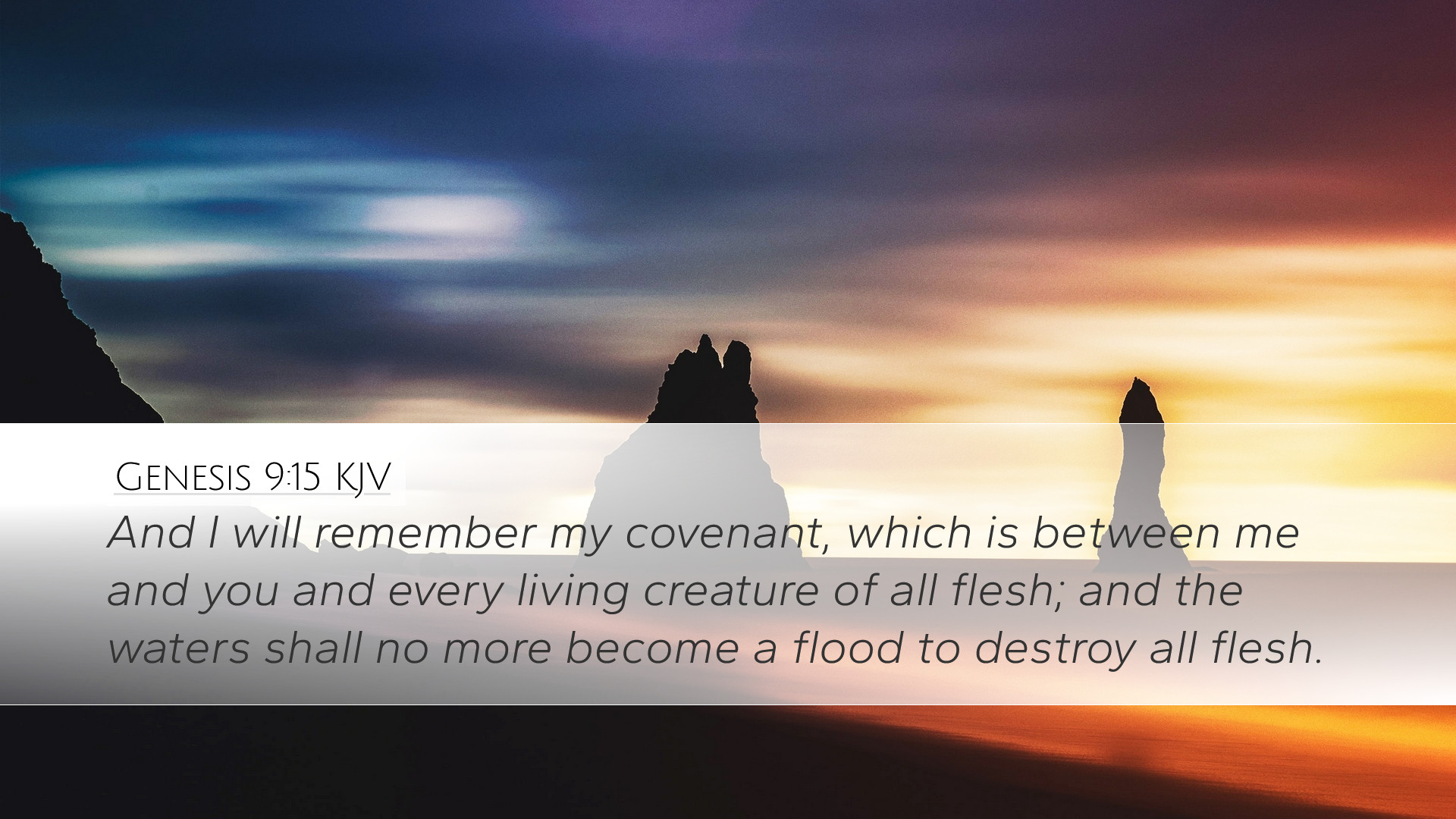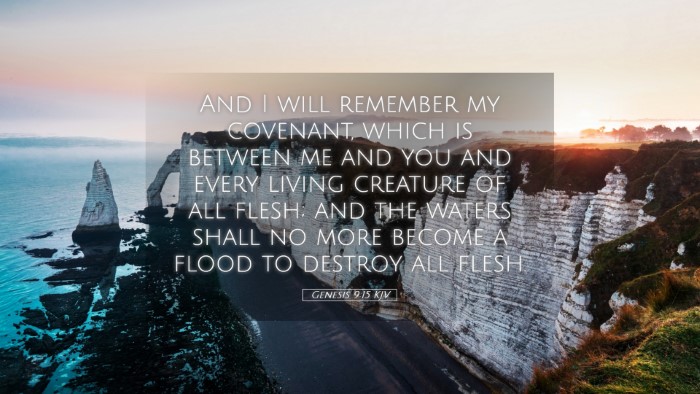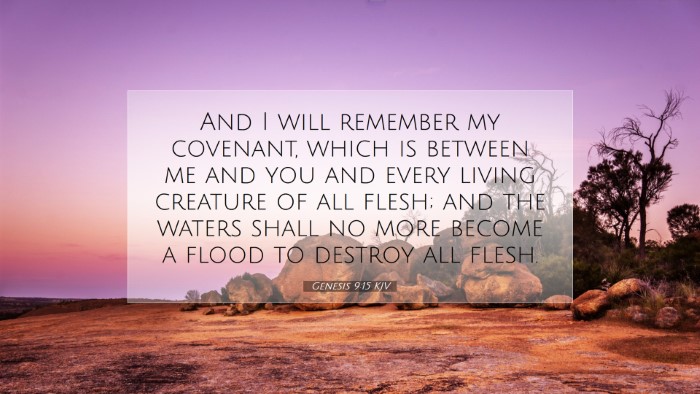Commentary on Genesis 9:15
Verse: "And I will remember my covenant, which is between me and you and every living creature of all flesh; and the waters shall no more become a flood to destroy all flesh." (Genesis 9:15)
Contextual Overview
The passage in Genesis 9:15 comes at a pivotal moment in biblical history. Following the Flood, God establishes a covenant with Noah, symbolizing His promise of preservation and mercy towards humanity and creation.
The Significance of God's Covenant
Matthew Henry emphasizes the importance of God's covenant as a demonstration of grace. It is a unilateral agreement where God commits to actions that depend solely on His character and benevolence.
Adam Clarke further elucidates that this covenant is not only with Noah but extends to all living creatures, highlighting God’s concern not just for humanity, but for all of creation, establishing a comprehensive relationship.
Theological Implications
- The Nature of God: The promise signifies God's unchanging nature. As noted by Albert Barnes, God's remembrance of the covenant reflects His faithfulness and reliability.
- Mercy and Judgment: The verse illustrates a balance between mercy and judgment. God’s commitment to never destroy the earth with a flood again shows His mercy following the outpouring of judgment.
Symbols and Signs
While the verse itself does not mention a sign, the subsequent verses introduce the rainbow as a symbol of this covenant. Matthew Henry connects the rainbow with the hope and assurance that God extends to humanity. It serves as a visual reminder of God’s promise and faithfulness.
Reflections on Human Responsibility
Albert Barnes hints at the responsibility that comes with the covenant. Humanity is called to acknowledge this divine assurance, leading to a covenantal living that honors God’s commitment.
In this framework, Adam Clarke suggests that the remembrance of God’s covenant invites human beings to live in a manner consistent with the divine mercy they have received.
Practical Applications
This verse brings several practical insights for contemporary believers and leaders:
- Cultivating Trust: Just as Noah trusted God's promise, pastors and leaders must foster trust in God's faithfulness within their communities.
- Environmental Stewardship: Understanding that God's covenant extends to all living creatures encourages a holistic approach to environmental care, reflecting stewardship over creation.
- Shared Hope: The message of hope embedded in this promise should motivate Christians to embody and share hope in their interactions with others.
Conclusion
Genesis 9:15 serves as a powerful reminder of God's faithfulness and the nature of His covenants. As Matthew Henry, Albert Barnes, and Adam Clarke elucidate, this passage emphasizes the interplay of divine mercy and human accountability, underscoring a universal promise that transcends the immediate historical context to inform theological understandings and ethical responsibilities today.


